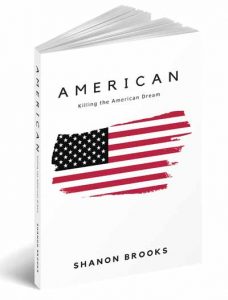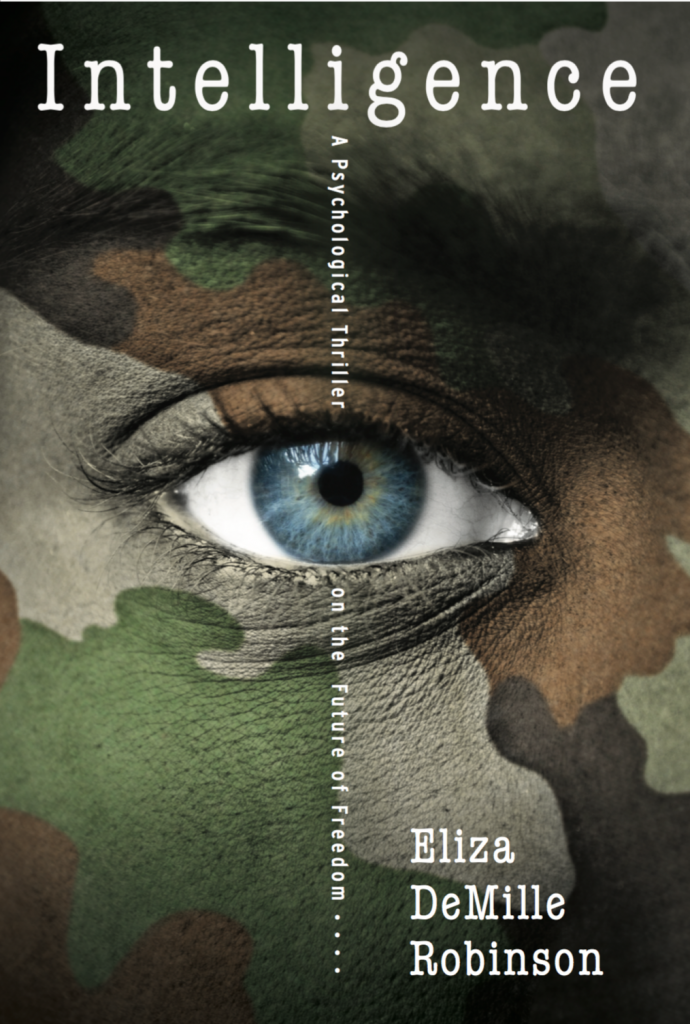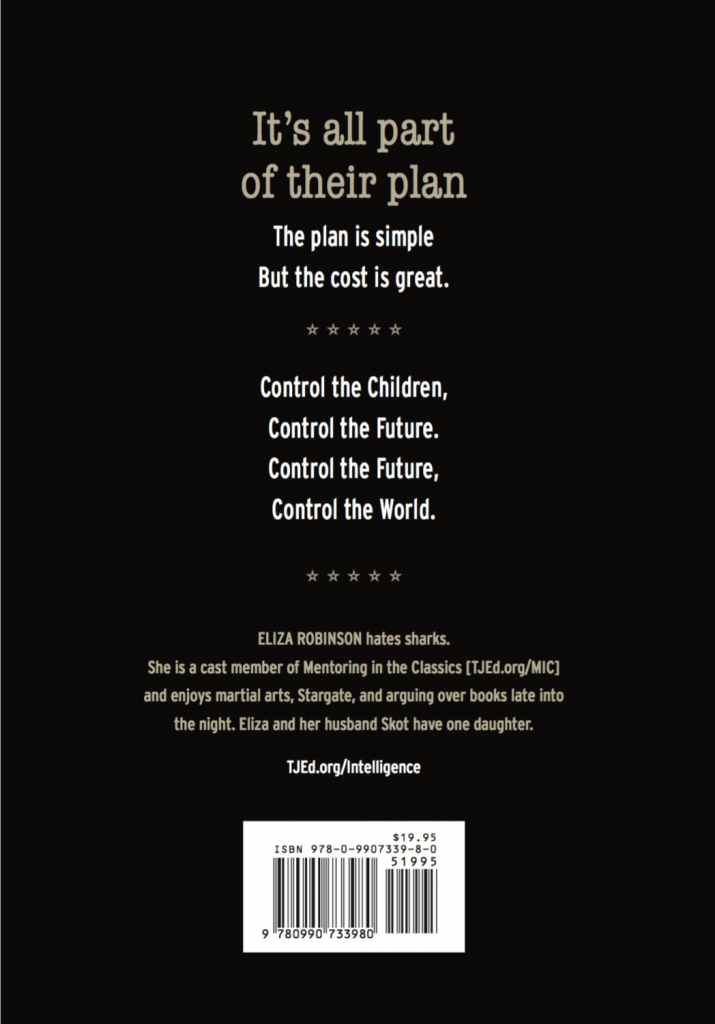News of the Day: Don’t be a Dummy!
August 15th, 2019 // 7:31 am @ Oliver DeMille
Where Do You Stand?
This headline, “Don’t Be a Dummy!,” is sincere. The sad truth is that too many Americans act like “dummies” too much of the time.
For example, consider the following quote:
“Public Policy Polling asked a broad sample of Democratic and Republican primary voters whether they would support bombing Agrabah. Nearly a third of Republican respondents said they would, versus 13 percent who opposed the idea. Democratic preferences were roughly reversed; 36 percent were opposed, and 19 percent were in favor. Agrabah doesn’t exist. It’s the fictional country in the 1992 Disney film Aladdin. Liberals crowed that the poll showed Republicans’ aggressive tendencies. Conservatives countered that it showed Democrats’ reflexive pacifism. Experts in national security couldn’t fail to notice that 43 percent of Republicans and 55 percent of Democrats polled had an actual, defined view on bombing a place in a cartoon.”*
Another way to explain this is that too many of us act like dummies when it comes to current events.
How? First, we too often allow ourselves to hold and express kneejerk opinions on things without studying them and learning even the most basic details.
Second, we are frequently sure we’re right in our opinions, even when we’re just expressing careless views without studying any of the facts.
Third, we too often choose the lazy path when a 30-second search of a topic, or in this case a world map, would tell us that Agrabah is a fictional land from a cartoon movie. Too many Americans** do this kind of thing over and over, often without even realizing it. This isn’t an issue of conservative or liberal, red or blue. It’s a simple matter of assuming we know things instead of immediately saying “I don’t know” and then just bothering to look it up.
If Thomas Jefferson, James Madison, or Abigail Adams had been asked about invading or bombing Agrabah, it’s pretty obvious to anyone who has read their history that they would have paused, pondered, and then done some research. Simple thing. Big consequences.***
So, seriously, let’s not be dummies. When we hear, read, or see something in current events that we don’t know about, let’s be the kind of citizens who take a some time and look up what’s actually happening. If it’s deep, or complex, or contested by the conservative versus liberal media, let’s study a bit deeper.
A free people seldom stay free if they don’t stand up for their freedoms, and that’s hard to do if they don’t take the time to look up things they don’t know. In our system of government the opinions of citizens matter. It’s up to each of us as a citizen to make sure that our opinions are based on knowledge. That’s the only way we can act with wisdom.
A challenge to all of us: When you hear something in current events that you don’t know, or even if you’re just not sure, take a bit of time to look it up. Read about it. Study different viewpoints on the issue. Ponder it for yourself. Then, based on knowledge, develop your opinion. If you already do this, great. If not, let’s all adopt this as a new habit. This very small thing can have a huge, positive impact on freedom. The opposite, just having opinions but not really finding out, definitely hurts our nation.
Also: This is important. Pass it on!
Notes
*From Foreign Affairs, Tom Nichols, “How America Lost Faith in Expertise”
**And too many of our international friends as well.
***See Real Clear Politics, David Shribman, “America’s Knowledge Crisis“; The Atlantic, Yascha Mounk, “Republicans Don’t Understand Democrats–And Democrats Don’t Understand Republicans: A new study shows Americans have little understanding of their political adversaries–and education doesn’t help“; Politico, Nick Gass, “Americans bomb Pew test of basic political knowledge“; The Atlantic, David Pozen, Eric Talley and Julian Nyarko, “Republicans and Democrats are Describing Two Different Constitutions“
Category : Blog &Citizenship &Community &Culture &Current Events &Education &Featured &Foreign Affairs &Generations &Government &History &Information Age &Leadership &Liberty &Politics
News of the Day: Which Constitution?
July 8th, 2019 // 9:03 pm @ Oliver DeMille

I. Today in the News
There is so much going on in the news these days–big events that have major potential to influence the future of our nation and freedom. Unfortunately, almost all the news is reported with strong partisan leanings. The slant and spin are frequently overwhelming.
To respond, I’ve decided to do an in-the-news series that steps away from current partisan spin and addresses the big news of the day from the perspective of the U.S. Constitution and the viewpoint of the American Founding. It will give readers a different way to look at things. I’ll try to keep these brief and to the point, just a few paragraphs per post. I hope you will comment and share so this can influence people…
II. July 2019: Which Constitution?
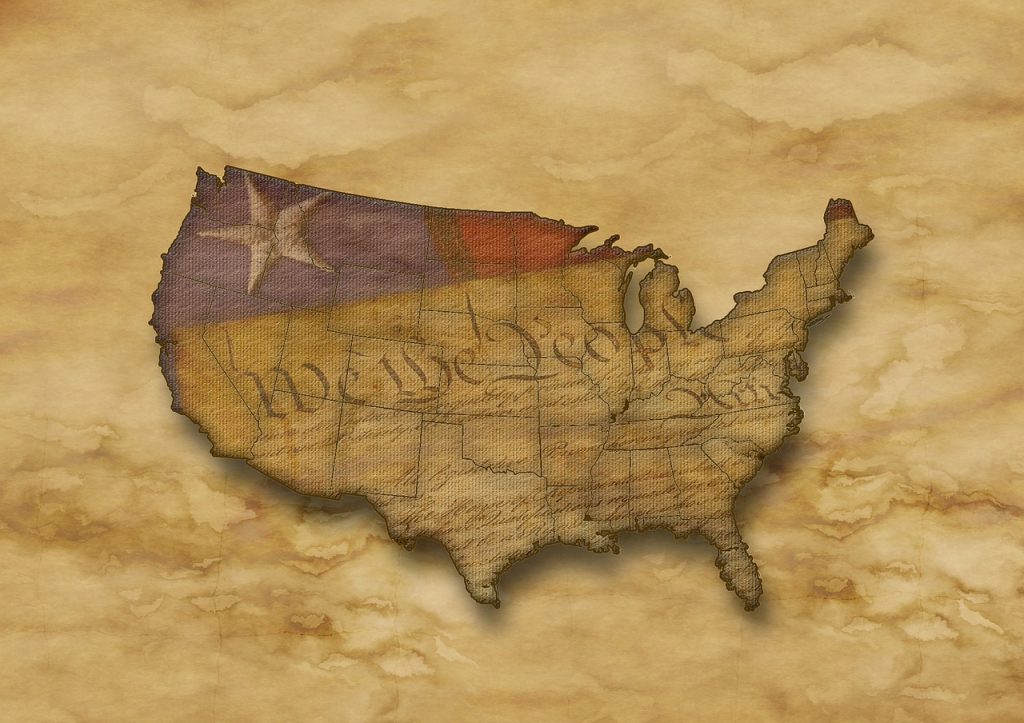
Myth: The other side (Democrats or Republicans) don’t care about the Constitution.
Fact: Actually they do. Both sides care deeply about the Constitution. But, it turns out, they care about different Constitutions. This isn’t surprising, given the way Red and Blue State cultures tend to disagree on almost everything. But most people, on both sides, don’t understand the way the other side passionately likes the Constitution. Here’s a quick primer.
Blind men describing an elephant
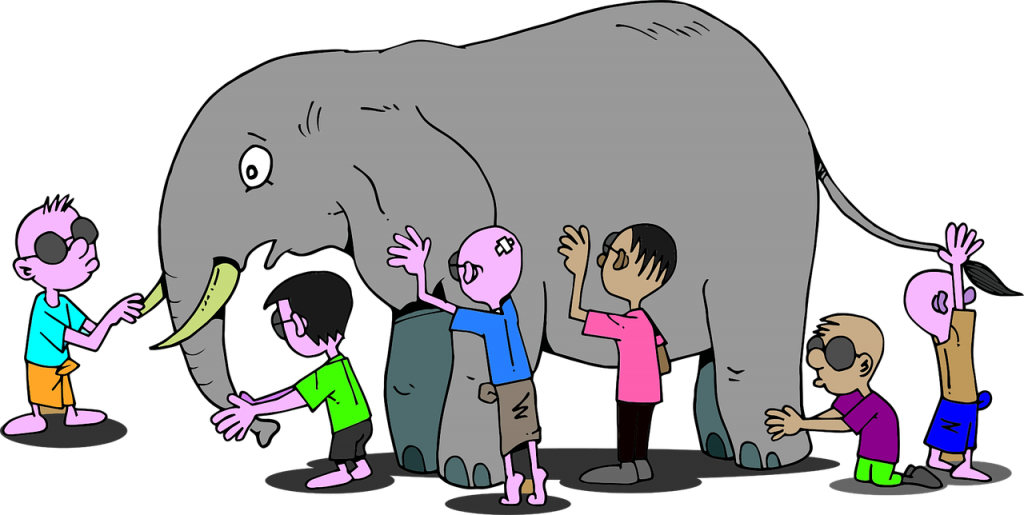
Three scholars (Pozen, Talley, and Nyarko) tallied speeches and comments made on the floor of Congress between 1873 and 2016 and put them to computational analysis. (See “Republicans and Democrats are Describing Two Different Constitutions“, The Atlantic, June 2, 2019) They learned that “…today’s conservatives” use the following constitutionally-charged terms a lot:
- Founding Fathers
- First Amendment
- Second Amendment
- Tenth Amendment
- individual liberty
- original intent
- inalienable rights
- states’ rights
- limits on government
Democrats, in contrast, are more likely to use the following constitutionally-charged terms:
- equality
- federal authority
- flawed origins of the Constitution
- civil rights
- right to vote
- government power
While Republicans tend to emphasize the stories and values of the American founding, Democrats the stories and values of Reconstruction and the Civil Rights era. When speaking of American flaws, Democrats frequently point to the Antebellum South while Republicans often criticize the counter-culture wars of the 1960s.
Democrats and Republicans in Congress do tend to agree on one thing: citing the Constitution to make their point. However, as Pozen, Talley and Nyarko put it:
“To an unprecedented extent, Republican and Democratic members of Congress no longer speak the same constitutional language. Underlying this polarization of constitutional discourse…are competing constitutional vocabularies.”
Bring up a controversial issue, and both sides are likely to appeal to the Constitution for support. (e.g. “The Constitution requires Trump to give Congress his tax returns” vs. “The Constitution prohibits the Treasury from giving Congress the President’s tax returns.”) The two sides cite different clauses in many cases, and nearly always provide opposite definitions and commentaries.
The bad news: the Constitution isn’t a unifying document in modern partisan politics. No surprise there. But it’s unfortunate. The good news, however, is that our nation’s top officials and experts are providing such different accounts and explanations of the Constitution that the only way most people can separate fact from fiction is to read the document for themselves. We’ve reached an ironic juncture in our era of hyper-partisanship:
Americans who want to know the real answers need to read the Constitution.
Not a bad place to be. And before you discount this and assume almost nobody from the “other side” will do it, stop and ask yourself:
Will you?
Is understanding what’s actually happening in the news worth a few minutes a day of looking it up in our nation’s most important document?
Category : Blog &Citizenship &Community &Constitution &Culture &Current Events &Education &Featured &Generations &Government &History &Independents &Information Age &Leadership &Liberty &Politics
THE JEFFERSON-MADISON DEBATES: A New Cold War is Coming PART II
June 11th, 2019 // 7:41 am @ Oliver DeMille
What Americans Can Do To Effectively Protect American Freedoms in the Decades Just Ahead
(Book Review of American, by Shanon Brooks)
Note to reader: read Part I of this report here >>
I. The Challenge
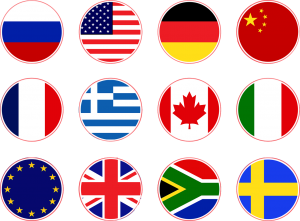
The 21st Century is shaping up as an era of major conflict, between (1) the three superpowers (the U.S., Russia, and China) and their allies and proxies (the European Union, Israel, North Korea, Iran, etc.), and also between (2) the Red- and Blue-state cultures that are further dividing America. If the U.S. doesn’t fix the problem (2) above, it will almost certainly lose the first battle (1) to China and/or Russia.
But what can regular Americans actually do? What will really work?
The three most effective things Americans can do to maintain our freedoms, families, and leadership in an increasingly dangerous world are:
- Spread great, classics- and freedom-based, leadership education
- Engage entrepreneurialism, the key to free enterprise, and encourage/help others to do the same
- Vote correctly and influence other voters to do the same (to protect and increase freedoms), and effectively influence government between elections
The battle for world leadership will come down to how well Americans do these three things. If we don’t win this battle, the world by 2040 will likely be run by two superpowers: China and Russia. Freedom values will be at odds with the rest of the world, and greatly reduced in the United States. Socialism will be the norm from the California redwoods to the beaches of Florida, from the Midwest to the Plains, and from the Rockies to Maine, in the cities and farms, and across all fifty states. Many of our most cherished freedoms will be reduced, or stolen.
How can we ensure that this doesn’t happen? A new book addresses this very question. This may be one of the most important books of our time; if we read and understand it, and take the right action, the future of America, our freedoms, our economy and our families, will be bright. If we don’t take the needed action…freedoms will be lost, socialism will spread, and families will suffer.
The book is titled simply, and sagely, American.
II. The Journey
Indeed, the title says it all. Written by Shanon Brooks, American gets to the heart of the problem, and the solutions. As Brooks puts it: “…we are killing the American Dream. Out of the top 30 countries in the world, the U.S. ranks 16th in literacy…and 14th in problem solving.”
Does that sound like a superpower? Or more like a past leader currently in decline? If we’re only 14th in problem solving, how can we truly expect to lead in the decades ahead, to tackle and solve our greatest problems, to help lead the world as it faces and overcomes the challenges ahead?
But the problem is even more daunting. Brooks wrote:
“National unfunded obligations are more than $100 trillion while U.S. household debt is at an all-time high of $13.2 trillion. We have one of the most litigious societies in the world, our incarceration rate is among the highest globally, and our state and federal legislatures are convinced that they are our cradle-to-grave caretakers.”
Unless something changes soon, and in major ways, we are not on the path to increased freedoms or economic opportunities for our children or grandchildren. In fact, we are quickly headed in the opposite direction.
As Brooks notes:
“How can we claim that America is the greatest nation in the world when 60% of our population can’t even pass the U.S. citizenship test? What have we done with the legacy of liberty that the founders so carefully crafted for us? And what are we creating to pass down to our children and grandchildren?”
The problem is real. The divide between those who even care about freedom and those who don’t is quickly expanding. And the root of the problem is at the very core of our daily lives: how we are educated, how we make a living, and how we participate (and don’t participate) as citizens overseeing and governing our own nation. As Travis Slade notes in the preface to American: “Pretty much everything about how we live today is killing the American Dream.” He’s right. And this book, American, is much more than a handbook on the principles of freedom—it’s all about how to apply those principles in the world today, in this economy, given the reality of the world we actually live in. Along the way, it addresses real issues across the board, including:
- Our Decaying Education System
- Our Work Life—Pros and Cons
- The Way People Vote and Otherwise Participate (or don’t) in Overseeing Our Government
- Commercial and Residential Construction
- The Health Care Industry
- The Transportation Industry
- The Food and Grocery Industry
- Local Law Enforcement
- The Issues of Immigration
- The Regulation State versus Free Enterprise
- Socialism versus Investment
- Employee versus Owner Mindsets
- Federal Government Overreach
- …Etc.
American asks us to seriously consider a number of poignant questions, questions that our national school/education system has patently taught us not to ask—or even think about in any meaningful way.
For example: “How can the American Dream be alive when each new American baby…inherits $300,000 of national debt…?”
And “…bureaucracy so deep and stifling that most just give up and give in.”
This book describes an America the Framers wouldn’t even recognize, a nation deeply entrenched in a bureaucratic quagmire the likes of ancient Byzantium, with a few celebrities, wealthy super elites, and top government officials (and their families) enjoying benefits akin to a medieval Venetian aristocracy.
And we call this “American?” It isn’t. It was supposed to be different. It was designed to be different. But only the people are capable of keeping our freedoms, as the Framers warned. No elites will save us. It is up to regular Americans.
III. Solutions
The best part of American is the solutions. I won’t spoil the book by listing them all here, or going into detailed applications and strategies, but they cut right to the heart of the matter, skipping symptoms and focusing on what we really need to do in order to steer things in the right direction. If we want real freedom, and effective results, we’re going to have to act. Brooks outlines what we need to do, and how to get started.
Specifically, as mentioned above, this book emphasizes the three major things we need to influence, change, and improve if America is going to survive as an effective beacon of freedom—in the world, and at home to the rising generations.
First, the right kind of education. Second, the right choices in the way we as a people make a living. And third, the way we vote—what goes into our voting decisions and the way we train up young people to be wise voters—and the ways we actively participate in governing our nation between elections.
Ultimately, these three things boil down to the quality of our learning, the kind of education we share, support, and pass on to our children and especially our young adults. If we get this right, the rest will follow. If not, our freedoms are very much in danger. America simply cannot survive three more generations of education like what we currently have.
We actually have two education systems in modern America, one for elites and those who work as the elites’ advisors, professionals, and managers, and another for the masses. Most Americans attend the second type of schools; the result is that America now educates mostly followers. This hard-to-hear reality is, nonetheless, true. It is time to face it openly, and change it. American is not just a great book on freedom and leadership, but an excellent book on higher education, right up there with Henry Newman’s great classic The Idea of a University, The Higher Learning in America by Robert Hutchins, An Education for Our Time by Josiah Bunting, and The Closing of the American Mind by Allan Bloom. Brooks benefitted from the ideas in all of these, and many others, and as a result American is the best book on higher education that I have ever read.
Every American who cares about freedom and our future should read it. And every American should care about freedom and our future.
Perhaps most importantly, Brooks’ book will introduce the reader to a number of very important ideas and principles that are seldom discussed anymore—in schools, homes, churches, or places of business, and certainly not by the media—but were once understood, cherished, and debated by every free American. The early Americans taught these things to their children, and were ashamed if any of their children couldn’t articulate these principles of freedom and life fluently and in detail. Such principles constitute the bulk of chapters 1 through 10 in American. Knowing them fully, and understanding how to apply them in society, was once considered crucial to being an American. They have now been almost entirely lost, and with them many of our freedoms. To reboot our freedoms, we must understand these vital principles and ideas.
It is time for us to know them. To pour over them, and to master them. To share them, teach them, talk about them, debate them, and apply them. It is past time. We cannot wait any longer. We must act. Again, our freedoms and the future of our posterity are at stake. If we get the freedom principles right, if we understand and effectively implement them, we will be another generation of American heroes. If not, the candle of American freedom will be snuffed out.
This is true. This is real. This is happening.
Not every person will apply the things learned in American the same way. Or even agree on every specific. This is the way it should be—free people applying principles differently, based on personal mission. But all of us should learn them. Know them. Ponder, discuss, and apply them as inspired.
It is time.
To act…
Recommended Reading
- American (Shanon Brooks) 2019—Available on the Monticello College website >>
Category : Aristocracy &Blog &Book Reviews &Business &Citizenship &Community &Constitution &Culture &Current Events &Economics &Education &Entrepreneurship &Family &Featured &Foreign Affairs &Generations &Government &History &Independents &Information Age &Leadership &Liberty &Mini-Factories &Mission &Politics &Prosperity &Statesmanship
Don’t Miss This Book!
April 15th, 2019 // 9:44 am @ Oliver DeMille
A Note from Oliver DeMille…
Summer – 1985 or 1986: I couldn’t believe it. I found myself holding my breath. Hanging on every word, page after page, waiting to see if freedom would be lost forever… Could they fix it? Or was it too far gone? And how could they get back their freedoms if they waited any longer?

I was a teenager at the time, and I had no idea that I would eventually dedicate much of my adult life to studying and promoting freedom, and the great principles upon which freedom is based.
But I don’t think I would have become a serious student or promoter of freedom without reading two books – both of which made me fall head-over-heels in love with freedom, and inserted deeply into my heart and mind why it matters.
The two books were The Alliance by Gerald Lund and The Making of America by [the man who later became my personal mentor] Cleon Skousen, and they changed my life. I truly came to love freedom as I read them during one hot summer in the family home where I grew up.
The Battle for our Youth
Today I look around at the rising generation – over 50% of whom (in the United States) say they like socialism. I look at the lack of interest in freedom among so many young people, and I worry about the future. After all the blood and tears that the Founders, pioneers and so many soldiers paid for our freedoms, why can’t everyone see how important this is? We can’t remain free if the youth don’t care about it, or if they think socialism is a better path. But just caring about freedom isn’t enough. We need the younger generation to truly fall in love with freedom.
Nothing else will prepare them to be the kind of people who stand up for freedom and right and make sure it isn’t lost.
I’m writing today to highly recommend a new book that I believe will have the same kind of impact on those who read it – inspiring them to fall deeply in love with freedom. Or, if they already care about freedom, as many do, to love and cherish it even more.
The book is Intelligence, written by Eliza DeMille Robinson, my daughter and mentee during over 20 years of personalized homeschool mentoring.
This is a dystopian novel, with real answers for the real world – plus a bit of an epic on the future of freedom, and a truly excellent read. I smile as I review it, seeing the years of study in history, leadership, freedom, government, literature, classics, science and other books with discussions!
I see all that she discovered – we discovered together – now poured into the plot and characters. The book depicts a near-future world torn apart by the battle between freedom and socialism, and paints a realistic and challenging picture of where we may be heading in our modern society if the conveyor-belt system of education keeps expanding at its current pace!
It speaks directly to people today, both those in the rising generations and their parents. It is a powerful message for this time, our specific time, in history.
TJEd is proud to promote this important new book, because we consider Intelligence a must-read for anyone who loves freedom, great education, and sees the increase in value and need for Leadership Education in our world today.
Eliza has been writing and rewriting this book for five years, and I have watched it develop from a good idea into a solid story by a student, then into an excellent book in its own right–and, during the last year, into a truly great book with an important message for everyone in our current generation.
It’s exciting to now see it published. I think this book is especially powerful for today’s youth, to help them value freedom, love learning at an even deeper level, and actually fall in love with freedom–something that is increasingly and tragically rare in the rising generation.
This is a great book, a life-changing book! We are proud to promote it to everyone who cares about the direction modern education is too often taking many families and our world, and all who care about the freedoms that are being lost almost daily.
Don’t miss this great book – for youth, for parents, and the whole family. The time for such a story is now, while we can still make a difference for freedom.
Prepare to be inspired…
January 2019: I realize that once again I’m holding my breath, caught up in the intensity of the story. This feels just like it did back then. I inhale deeply as I turn the page; then as I read about dear Brianna’s decision, the tears come. Then the sobs; my mind is reeling. I keep thinking: freedom is worth it. So worth it. I wipe away the tears and keep reading…
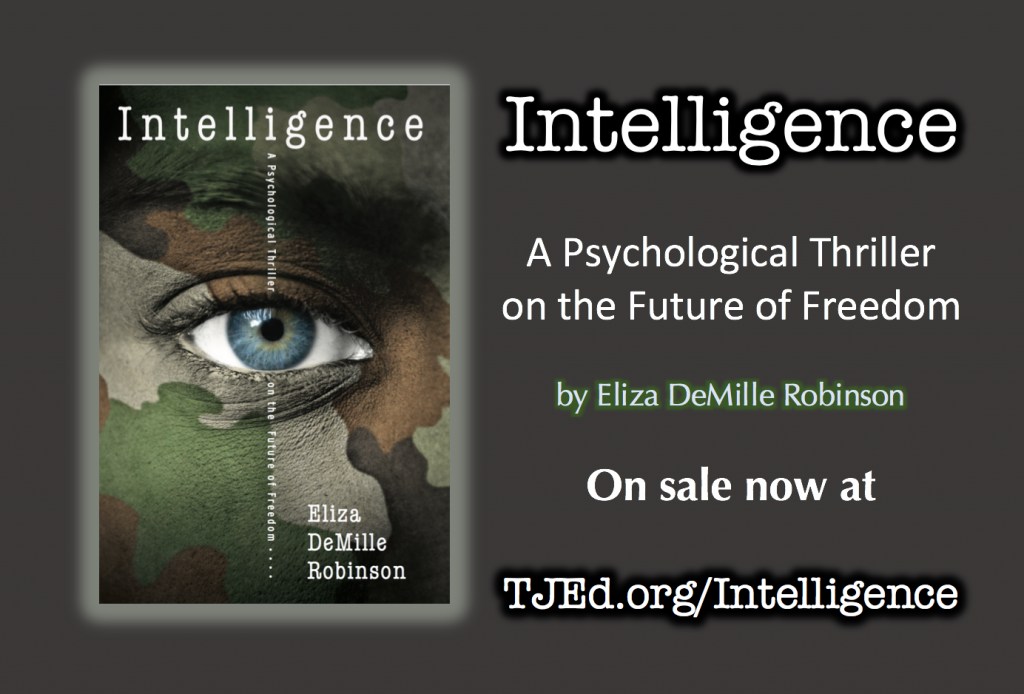
What are readers saying?
“A dystopian novel worthy of sitting beside titles like The Hunger Games and The Giver, Intelligence tells a story that is crucial to our rising generation. Excellent for teens and adults, its deep and plentiful messages remind readers about the impact of our current decisions on our future, providing hours of discussion time after just a single chapter!”
~Jonathan D. Martin, 14yo TJEd High student
“I’m a huge fan of dystopian fiction. Intelligence goes even a step above and beyond what we have read in current fiction. It not only has an original and intriguing plot, but it illustrates true principles to keep our country free. This is must read for my teens! Robinson is a captivating author. I look forward to reading much more of her work!”
~Toni Nelson
“Deeply thought provoking, couldn’t put it down, then couldn’t wait to discuss it with friends and family! So much here: what a personal life mission looks like, how it is discovered; the basic premise of freedom on all levels from national/governmental to individual/personal; sacrifice and what is worth the sacrifice; what is good, what is evil and what determines that all wrapped up in a captivating, moving storyline. ”
~Sarah Teichert
“More than anything, Intelligence, By Eliza DeMille Robinson, whet my palate for more! In this first book, you get a thrilling journey through the souls of unique and interesting individuals as they discover what is worth fighting and sacrificing for. The individual, the collective, the very state of the world hangs in the balance as the dedicated few battle for freedom, truth, and all that is right and worthy in the world. It’s a bit dystopian, a bit sci-fi, a bit coming of age, a bit a hero’s tale, a bit treatise on the future of the human race! The world Eliza builds will all ring a bit disturbingly true and you’ll come to take a moment to search your soul as the characters search theirs and find their true calling and power as individuals.”
~Lisa Paul
Excellent for gifting, book clubs, and family discussion! Purchase your copies today!
Category : Blog &Book Reviews &Culture &Education &Featured &Government &History &Leadership &Liberty &Mission &Politics &Statesmanship
The Jefferson-Madison Debates: What Are We NOT Teaching Today’s Youth?
February 27th, 2019 // 8:04 am @ Oliver DeMille
THE MISSING TOPIC IN MODERN EDUCATION

What Was Lost
I thought he was convinced, but then he leaned forward in his chair and shook his head. He wasn’t officially my student, but we’d had a number of mentoring discussions in recent months, and I knew from experience that he was about to say something deep.
“It’s frustrating that so many people in my generation like socialism,” he said. “But I don’t think they really understand it. They just dislike all the political division and fighting, and Bernie Sanders seemed like a third alternative.”
I nodded.
“Besides,” he continued, “I’m not actually a Millennial.”
“You’re not?” I asked…
“I’m Gen Z,” he said before I could finish. “Born after 9/11.”
I pondered that.
“We’re different from Millennials.” He paused. “A lot different.”
I could see this was really important to him. “In what ways?” I asked.
He could tell I wasn’t really buying it, and he grinned. “Well, we’re similar in a lot of ways too, I guess…” He pursed his bottom lip and cocked his head slightly to one side. “But I don’t think that’s our fault. I think the bad traits that are blamed on Millennials and Gen Z aren’t really caused by us.”
I was shaking my head at this point, so he raised his voice a bit.
“No. Seriously. This is real. You guys just don’t get it…”
“Get what?”
He sighed. “Okay, you’re not wrong. But you’re not right, either. It goes deeper than pointing out the weaknesses of Millennials. We’ve bought into some things we shouldn’t, but I blame most of it on Boomers and Gen X, on our parents and the other adults in our lives. Your generation trained us to be this way.”
My skepticism must have showed.
“Look…” he said. He was getting a bit frustrated, but he calmed himself and smiled. I could tell he had given this a lot of thought.
“Here’s the deal,” he looked at me intently. “Your generation cared a lot about raising kids. Maybe too much. They don’t call you ‘Helicopter Parents’ for nothing. But in all your hovering as parents, your generation missed something. Something big.”
I waited, not sure what to expect.
“Your generation of parents taught my generation to be good people. And you taught us to aim for success in our schooling and careers. But you didn’t teach us to be strong.”
He said the last sentence slowly, with emphasis on the words “didn’t” and “strong.” I was surprised by his words. After considering them for a moment, I realized I was hearing something important.
Making Snow
“Huh…. You might be right,” I said slowly.
“In fact, you actually avoided teaching us to be strong—in a lot of ways. If we had a chance to face a problem or struggle on our own, you jumped in and offered help. Or just told us what to do. Or told us not to worry about it, and then you took care of it.” He kept talking, without pausing: “If something seemed hard for us, you told us to drop it or avoid it. If you didn’t think we could handle it, you didn’t even let us try…
“Of course, there are exceptions. Rare parents who did it differently. Unique teachers, coaches or others who pushed us. But they are the exceptions, not the rule. “And for every demanding coach or hard teacher who pushed us there are twenty parents protecting us from those same people, telling us we don’t have listen to them or do what they say. Every time I had a demanding youth leader or coach, almost all the other adults in my life undermined them. Most kids in my generation have a habit of just ignoring anything hard—they know their parents will back them and help them get out of hard things. So they hardly ever push themselves. Why should they—when the adults are always telling them the easy way is better?”
He stopped to take a breath, but I didn’t have anything to say. I was nodding by this point, surprised at his intensity, and also the wisdom of his observations.
“You know how many adults act worried when I tell them I like martial arts, and football? And try to talk me into quitting? Also, I’ve learned never to mention that I might want to serve in the military when I’m older. That gets most adults really angry at me—like serving your country is the stupidest choice anyone could ever make…”
He cocked his head again. “Which is strange, because those same people act super patriotic when the flag is mentioned, or in church meetings around the Fourth of July. I’ve noticed that a lot of them fly flags in front of their yard. It’s weird.”
I sighed, a bit overwhelmed by his onslaught. Important thoughts, these.
“What did you say my generation teaches well, versus poorly?” I asked. I wanted to make sure I remembered it correctly.
“You’ve taught us to be good, and to seek career success. But you don’t teach us to be strong. In fact, most of the time you teach us to be weak.”
“Wow…”
He frowned. “And your generation has the audacity to point out how weak my generation is, and mock us for things like participation trophies. I mean, most of us want real trophies, at least at first. It’s the adults who told us that participation trophies are better. You teach us to be weak, you refuse to let us do hard things that build strength, and you warn us against doing anything really hard or risky in life, then you call us Snowflakes!” His shook his head in disgust.
“Okay,” I responded. “I get it. You’re making a lot of sense.” I laughed: “But calling your generation ‘Phone Zombies’, or ‘Selfie Addicts’, like some people do, is pretty accurate, right?”
He laughed with me. Then he said: “But you guys aren’t the best with phones either. Like, why does your generation answer the phone by saying ‘hello’ and acting like you don’t know who’s calling? You have the name of the caller right on your screen!”
I laughed. I had never noticed that before.
He knit his brow. “It’s basically the same thing, really. It’s pretending. Why do Boomers and Gen X pretend so much? You pretend you don’t know who is calling on the phone, but it gets worse. You pretend to know the answers, and you pretend you know so much better than us. But you don’t, not really. We didn’t elect Clinton, Obama, or Trump or Bush. You guys did that. Why?”
Opposite Lessons
I laughed again. “Good question. I don’t know if I have a good answer though. But…you don’t like any of them? I thought a lot of Millennials liked Obama?”
“Not me. But then Gen Z is different politically than most Millennials, and I’m unique even for Gen Z.”
“How are you different?”
“Easy—my parents taught me to be strong, not weak. That makes me different from a lot of people my age.”
“How did they do it?” I asked.
“My parents? Well, they did it with little things, mostly. Like…the time a sixth grader was picking on my little sister, and shoving her, and I told him to stop. He told me no, and kept shoving her. I was only in the third grade, and my sister was a first grader, but when the bigger kid didn’t stop I hit him right in the nose. Hard. He was twice my size, but I couldn’t just stand there and watch him hurt my sister.”
“What happened?”“I got in trouble, and got lectured about how nobody should ever hit anyone no matter what. I asked the principal if that applied to U.S. soldiers fighting Hitler, and he didn’t like it. He called my mom and she promised she’d read me the riot act. When I got home, my mom asked what happened. I told her everything, and when I was done she told me I did the right thing. My dad said he’d never been prouder of me in my whole life.”
“Wow,” I said. “What did the principal think of that?” “Nothing. They told me to tell him I was sorry and wouldn’t do it again. But to stop the big kid anyway if he kept picking on my sister. I asked about the principal’s threat to kick me out of school, and my parents laughed. ‘You don’t need school to learn,’ my mom said. So I kept a close eye on that kid.”
“Did he pick on your little sister again?”
“No. The boy got in big trouble. Not for picking on my sister, but for getting in a fight with me.”
“Oh, he hit you back?”
“No. He just got hit, and fell down. That’s all he did. But his parents called that a fight and grounded him.”
“Maybe the parents didn’t like that he was shoving a little first grader, and that’s why they grounded him.”
He thought about that. “Maybe. That’s not what he said, though. He said it was for fighting with me, even though all he did was fall down and cry. Either way, the boy learned the lesson to never get in a fight cause you’ll get grounded, and I learned the lesson to stand up for what’s right. We learned opposite lessons.”
“You think that made the bigger boy weaker in life?”
“No idea. We moved away a year later. But he was bullying a little kid, so maybe he needed to learn to be smarter and nicer, not stronger. But what I realized from that event is that most adults don’t want us to be strong. Some do, but most don’t. I’ve seen a lot of other examples of this through the years.”
“Like what?”
Rules and Exceptions
“Well, the biggest example is found just by comparing the way people online talk about Millennials with what my generation is taught almost every day in school. Almost every criticism of Millennials comes from following the exact same lessons we’re taught to obey in school. If we act the way our teachers tell us we’re called “good students” when we’re in school, but if we act that same way once we’re out in the workforce we’re called ‘Snowflakes,’ ‘flaky,’ ‘uncommitted,’ and things like that. It’s annoying.”
“Yeah,” I nodded again. “Makes sense. You’re told over and over not to rock the boat, so you learn to be…I’m not sure what the right word is…”
“Mediocre?” he asked, “Passive? Weak? Unfocused.”
“Okay. Is that what you think?”
“We’re the Mediocre Generation,” he nodded. “But hey, how could we be anything else? We’re told over and over that you aren’t a good person if you go after the achievement trophy by beating the other team. We’re supposed to make sure everyone does just as well as we do, even if that means losing or not trying very hard.”
“But in sports…”
“Like I said before,” he interrupted, “there are exceptions, like sports, the military, or…well, I can’t think of anything else. But only a few people get to be in competitive sports. Most of us just play sports in gym class, and it’s never about winning, always about trying less so nobody looks bad. We’re taught to relax and never try hard in anything. Never show up anyone else. Just stay in the middle of the group. Then, when we get in the workforce we’re called slackers, lacking ambition, not leaders. It’s trash. The double standard is trash.”
“Is that why you like martial arts, because you get to really do your best?”
“Yes, and no,” he answered. “In most martial arts classes, it’s the very same. I’ve had lots of martial arts teachers, because we moved a lot, but only one of them really taught us to be strong, to actually fight, to test our moves in real combat. The other classes were a lot of theory, very little actual fighting, or learning to fight. Then I got a teacher who let us get bloody, literally, because he wanted us to actually be good at what we were learning. Lots of parents pulled their kids out of the class after just one or two visits, but that teacher taught me so much more than all the other teachers combined.”
“So, you think parents should let their kids get bloody noses and bruised faces more often?”
He laughed. “That’s the kind of thing adults say when they’re going to the extreme, when they want to feel good about raising weak kids rather than letting their kid do hard things. As if those are the only two options. That’s a straw man argument.”
“But, let’s just be honest,” he continued, “If you want to be good at self defense, you’re going to have to learn to actually defend yourself. And yes, that means getting hit sometimes, enough to become good at the skill. The same thing is true in math, or history. I’m amazed at the wimpy assignments a lot of kids get in their classes. If they don’t really study, they don’t learn very much. If their studies aren’t really hard, their education ends up being pretty weak.”
The Road Less Traveled
I nodded. “Any other ways your parents taught you to be strong?”
“A lot of ways… Example was one of the most important.”
“What example did they give you?”
“Well, they built a business. They both started as employees, but early on they decided to start a business, and that made a huge difference.”
“How so?”
“Building a successful business is about as hard as anything. It’s way harder than being an employee, in most cases. I watched my parents through the lean years, building, building, sacrificing. Always sure the benefits would eventually come, but working so hard for almost no pay, year after year. By the time success really came, I was almost grown up. But I watched them struggle and keep going. Building a business from scratch is an amazing thing. It was incredibly hard, and the family members all participated in making it work. I used to be so amazed at how much extra time other dads had to spend with their kids, and how much extra money they seemed to have.
“My dad’s extra time and money all went right back into the business. And it was amazing. We all learned so much. Watching my parents do really hard things, and eventually succeed, made me realize that I can do it too. I remember teachers in school talking about how hard entrepreneurship is, and how all the students should choose an easier path and be an employee. But those teachers aren’t nearly as impressive or successful as my parents. And they don’t make nearly as much money. So I followed the harder path whenever I could. Easy isn’t the goal. It just makes you weak. Strong is so much better.”
“You’re kind of a philosopher, aren’t you?” I asked.
“Not really. But I was homeschooled during my high school years, so I learned to think about things. Not just cram for tests, or try to look good with my grades, like they wanted me to in public school. I want to really understand the things I study, but that means digging deep. Hard, serious study brings real learning. The rest is trash.”
I laughed. “So if the world homeschooled, we’d all be better off?”
“No, that’s not what I’m saying. My point is entirely different. If the world did really, really hard education, we’d be way better off. Seriously! But so many of your generation keeps telling people my age to do easy stuff—as if that’s really going to help them. Like I said, if it’s easy education, it’s mostly trash. Regardless of home school, public school, or any other kind of school. Easy is usually trash. If it’s hard, it’s more likely worth doing.”
The Problem We Missed
“You’re in college now; so do you find it harder than before?”
“Well, my classmates nearly all say it’s a lot harder than high school. But I find it easier in one way, and harder in another. The material is easy. I study a couple of hours a day, or less, and I’ve gotten mostly straight A’s all year. It’s so much easier than my teen years in homeschool. But it’s hard in a way that’s really frustrating—there is a lot of busy work that teaches me nothing, but I have to do it and show my work. I can get the right answer within thirty seconds, but I have to take 5 or 10 minutes to show the work. Ridiculous. It’s not learning, it’s rote busywork. I think the purpose is to give students something to do to prove they’re working. But it gets in the way of real learning. Too much of it is a waste of time.”
“Maybe they’re trying to make it hard for you! You said you wanted hard.”
He didn’t smile at my joke. In fact, he frowned. “Rote isn’t the same thing as hard. Rote is a cop-out. It seems hard, but you’re not actually learning much, if anything. Real ‘hard’ is way better, because you actually improve your knowledge, your skills, your ability to think and apply what you learn. Easy is the opposite of hard, but in another way rote is also the opposite of hard.”
“Interesting. Do you think college is making the same mistake you said most Boomers and Gen Xers have been making with their kids—teaching today’s youth to be good people and succeed in a career, but not to be strong? Or is it different at the college level?”
“It’s different, because they are teaching you to focus on your career, and they hardly mention being good people. That part is basically gone at the college level. But they still aren’t teaching us to be strong. It’s just as weak as in elementary and high school.”
“Really?”
“Really,” he doubled down. “The focus on career is so strong that nothing else seems to matter. They just don’t have time for being good, or becoming strong. They teach classes on ethics and legal responsibilities, but these are about the career, not actually about being good people.”
“Why do you think being strong is so important? Do you actually believe we need to teach it to all young people?”
He looked at me like I had three heads.
“Okay,” he said, “I’ll bite. If you’re not strong, you’re not actually going to be all that good in life. Not really. Not when it counts. Being truly good takes serious strength. And if you’re not strong you’re also not going to be really successful—in your career, or in your family and relationships, or in reaching your own personal goals. All of these things are hard. Those who make these things work have to struggle and overcome challenges. They face problems and roadblocks and sometimes enemies or opponents. If they aren’t strong, they don’t succeed.
“And they’ll never improve the world much. If fixing the world’s problems were easy, they’d have been solved a long time ago. My generation needs to be strong. Weakness is our biggest weakness, and being strong is our biggest need.”
Getting Started
I nodded, impressed. “You’re a unique young man,” I mused.
He took this as an affront. “Not really. There are a lot more of us than you might think. But we don’t just have to learn to become strong, like all young people did in history, we also have to unlearn all the weakness and trash the older generations have fed us…”
He sighed. “Like I said, it’s not simple. We’re kids. We want to believe what adults tell us. When we figure out that a lot of it is wrong…that makes it frustrating. It’s disappointing. And it isn’t simple to know which things to believe and which are just making us weak.”
“Which things are trash,” I said.
He smiled.
So did I. Then I said: “Next time you call I’m going to answer my phone by saying your name, not pretending I don’t know who is on the line.”
He laughed. “Good choice.”
“I don’t know why we do that…habit I guess.” I shook my head slowly. “In my day, we really didn’t know who was on the line when the phone rang.” I paused. Then: “My generation wants things to be easy, too,” I told him. “We wish we could skip everything hard. It’s not just you guys.”
“But youth have to be taught to be strong while we’re young,” he responded. “I’ve noticed that the older you get before you learn to be strong, the harder it is, and the more people try to avoid it. Parents don’t help their kids when they make things easy.”
“Really?” I pushed back. “Two year olds? Four year olds? We should have them all running marathons?”
“There you go again, making your point with an extreme example.”
I grinned. “Okay, at what age should it be hard?”
He pondered. “Well…at the age that the hard thing makes the kid strong. Some things won’t make a two-year-old strong, but will make a ten-year-old strong. There are things at all ages that will help, or hurt. But most importantly we need a different way of doing things with teens. That’s where most of the damage is done right now.”
I looked at him with quizzical eyes. “What do you need to do right now in your life that is really hard and will make you stronger, that you’re not doing yet?”
“Ah…” he relaxed and leaned back in his chair. “Now you’re mentoring me. That’s great. Thank you. Let me think about that question…”
Part II
What does each young person you mentor or parent right now need this week, or month, in his or her life, to become stronger in the right ways?
*For more on this topic and ways to educate young people for strength, get the book Hero Education, by Oliver DeMille. Available here >>
Category : Blog &Citizenship &Culture &Current Events &Education &Entrepreneurship &Family &Featured &Generations &History &Leadership &Liberty &Mission &Technology


